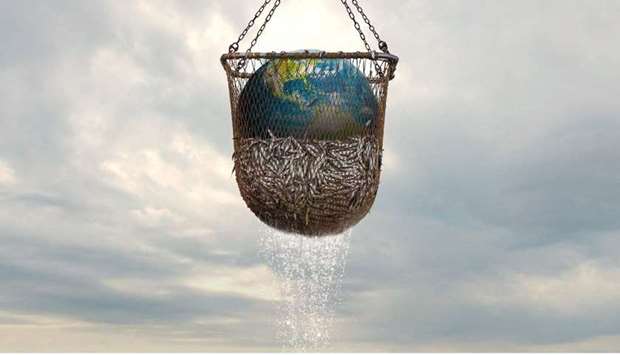It’s the Netflix documentary provoking conversation about veganism all over the world. Seaspiracy, directed by British filmmaker Ali Tabrizi, follows his journey as he discovers the true cost commercial fishing is having on the sea, and what we stand to lose if we continue to allow this industry to run rampant across our blue planet.
After watching everything from whale hunts to industrial-scale bottom trawling, shark-finning to infested fish farms, Tabrizi concludes that the oceans are in big trouble and the best way for him to be active on this issue is to: avoid eating seafood.
In fact, what I appreciated so much of Seaspiracy is very clear, very direct conclusion the documentary comes to – veganism. What Seaspiracy presents on a major streaming platform watched by millions and millions of people all over the globe is a reality check on the horrors of the fishing industry, the truth over what is really destroying our oceans (hint: fish eating humans have a much, much, much impact than plastic straws), and the endless cover-ups designed to avoid the cold, hard truth.
Much like Cowspiracy and What the Health, Seaspiracy gained popularity worldwide almost instantly after its March 24 debut on Netflix. Currently, the film is in the top 10 spots on Netflix in more than 40 countries, including here in Qatar (perhaps helped by the endorsement of HE Sheikha Al Mayassa bint Hamad bin Khalifa al-Thani, who recently encouraged all of her followers to watch the documentary).
Seaspiracy has the whole world hearing about how fishing nets make up 46% of the plastic in the Great Pacific Garbage Patch. (The Great Pacific Garbage Patch, three times the size of France, is the most polluted patch of water on the planet. Located between Hawaii and California, it’s filled with all kinds of plastic). Also, how sharks kill 12 people a year…but humans kill 11,000 to 30,000 sharks per hour.
It’s also spotlighting how – (while every little helps) – plastic straws account for just 0.03% of ocean plastic. Anyone serious about trying to play their part in combatting the crisis would have to recognise that the single largest impact we – as humans – can have on our planet: is to switch to plant-based.
When you do buy fish, or order seafood – you’re supporting fishing industry that already receives $35 billion in subsidies a year. Yet, as Seaspiracy outlines, according to the United Nations it would cost $20 billion a year to end world hunger.
Cutting down the amount of seafood you eat will have the single largest impact on our oceans, and the future of our planet — and while I’m not expecting people to make drastic dietary decisions overnight, what I do hope is the new Netflix documentary will provide as the beginning of a new chapter of awareness of what’s happening, realisation of what our solutions are, and commitment, both personal and in society, to change.
n The author is an expert in vegan wellbeing and health. Instagram handle: @Ghanim92

Seaspiracy is a Netflix documentary provoking conversation about veganism all over the world.
